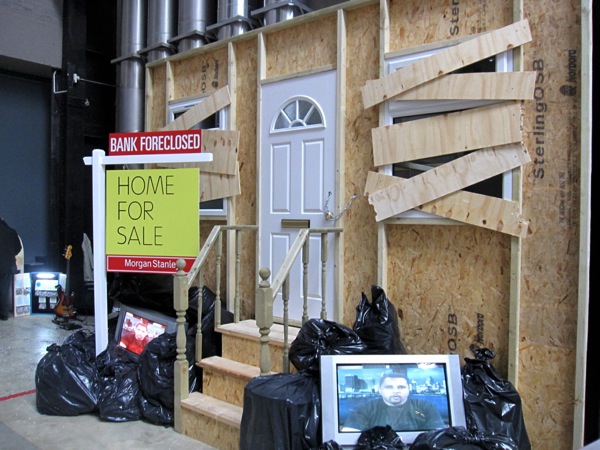
Art21: 5 Questions (for contemporary practice) with Not An Alternative By Thom Donovan
I encountered the art group Not An Alternative for the first time about a month ago in Corona, Queens, where Tania Bruguera (featured last month in 5 Questions) had assembled a panel on “useful art.” What immediately impressed me was the group’s ability to articulate its ongoing project, which aims both to create new spaces for cultural production and to question the ways that various participatory structures (social media, election processes, relational aesthetics) exclude certain subjects and amplify social and economic inequalities by means of participation.
Through their highly engaged work, work that functions somewhere between political activism, social service, and institutional critique, Not An Alternative confront the limits of what political theorist Jodi Dean has called, after a variety of critical theoretical debates, “communicative capitalism.” In a time of communicative capitalism, our political and social participation is increasingly exploited by the use of new media. Not An Alternative foregrounds this fact, presenting ways of navigating a relatively new digital landscape in which values once cherished by the militant left and avant-garde alike–participation, reflexivity, interactivity–have become corporate watchwords for how neoliberalism manages consent in a networked age.
Networked for some, but obviously not for all. Not An Alternative’s work is also crucial in the ways that it foregrounds exclusion, offering ways to visualize the limits of participation in a society in which obviously one’s ability to participate is largely determined by social and economic privilege. As Not An Alternative said during their presentation in Corona, referring to their collaboration with a homeless advocacy group in the Bronx (discussed below), they recognize the important of “desubjectifying” themselves, where to draw attention to their efforts may work against the causes of the community groups with whom they choose to work.
The Not (or nots, plural) of Not An Alternative are significant in a time in which terms like “collaboration,” “participation,” and “interactivity” remain largely unquestioned. What would it mean to drop out, when dropping out would no longer seem an option? Not An Alternative do not so much drop out as use the resources and machinery of communicative capitalism to produce a different set of results that undermine the seamless functioning of neoliberalism. In this way they negate and refuse, but their refusal also has a positive effect.



No Comments